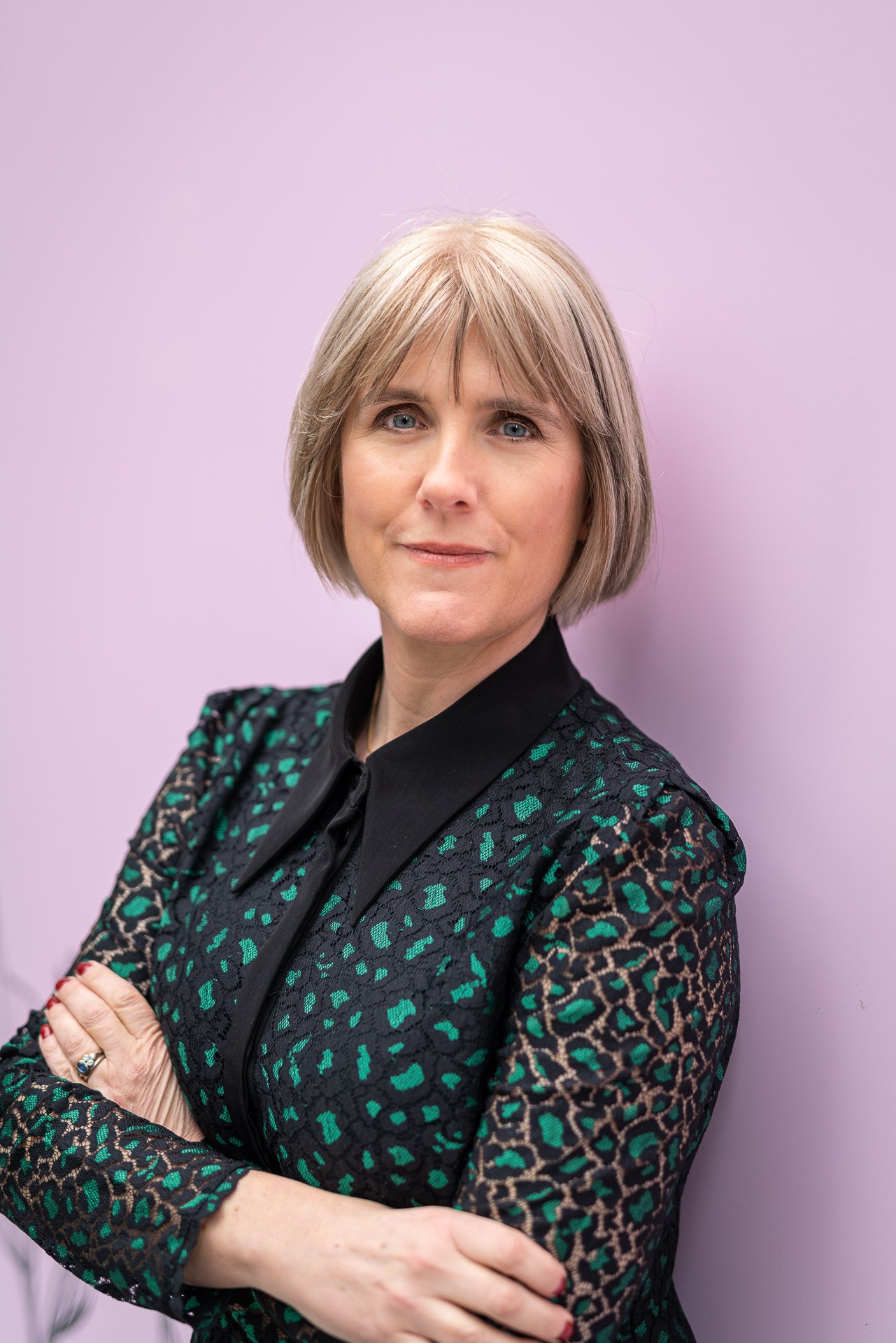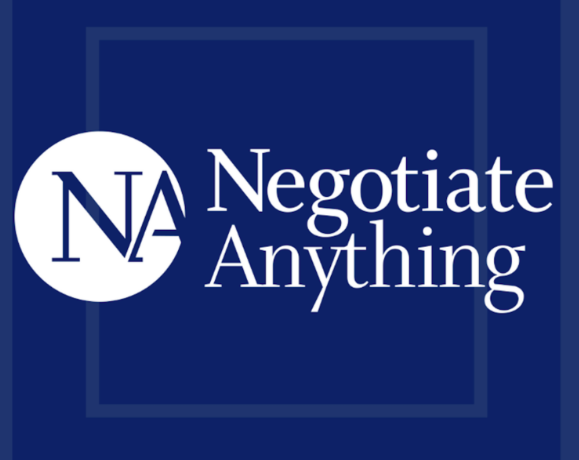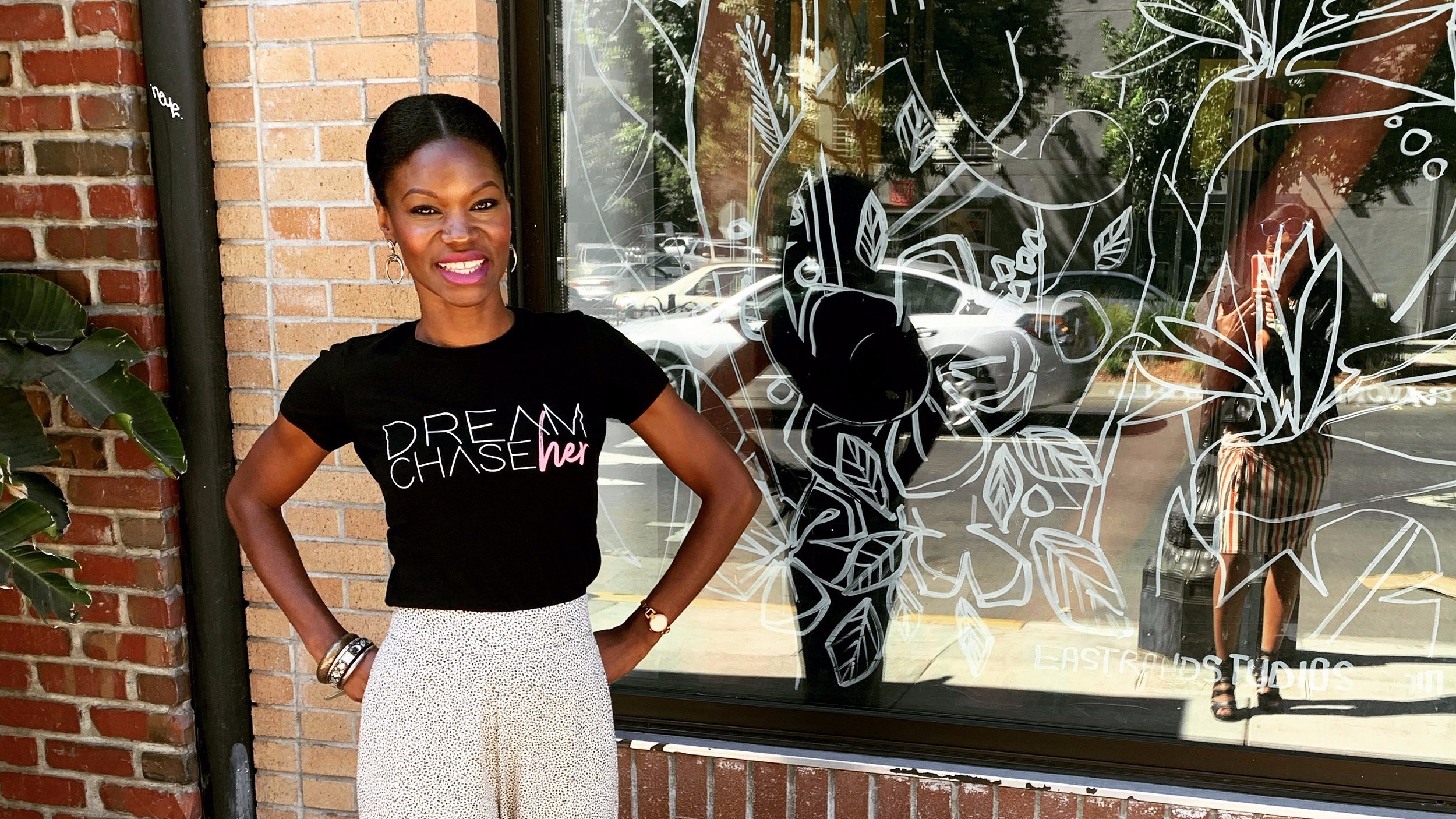TAKE A MINUTE
Don’t do a knee-jerk and send an all-staff email or Slack message. Take a minute. Go for a walk. Call your BFF and sleep on it.
Take a read of the paperwork and offer they’ve sent to you.
Have a friend do the same.
And if you suspect dodgy behavior or discrimination - you may want a lawyer to run an eye over it too. (more on that later)
You do NOT have to sign anything when you’re first notified. You certainly don't have to sign a job separation offer as soon as it’s presented to you. Don’t sign anything for at least 24 hours - a week if you can.
Emotions are running high and you deserve to take the time to read it over and have someone else with fresh eyes take a look at it too. Ideally, talk to an employment lawyer to be safe.
You normally will have a few weeks to sit with the offer before you have to make a call. So take your time!
WHAT DO YOU NEED?
The next step after you’ve had a bit of a breather is to honestly ask yourself these questions:
What is the most important thing for you right now?
What does your family need?
What are your next steps?
How long will it (realistically) take you to find a new job? A month? 4 months? or 2 years? This all helps factor in how and what you negotiate.
What is the economy right now and how will that impact your next steps?
This will help you piece together the dollar figure you need to comfortably handle your job search. This gives you a baseline and a “why” to work towards in your severance negotiations.
SO YOU’VE BEEN LAID OFF - IS IT LEGAL?
No one likes being laid off - but it happens. One question you should ask, though, as part of your process is - was this legal?
Sadly, of the people I’ve been speaking to lately, I would say about 1 in 4 who I talk to have a fairly straightforward case for discrimination (keeping in mind I’m not a lawyer, but I deal with this stuff every week.)
For example, one client in Canada was laid off immediately upon her return from maternity leave. This is a situation that *could* very be illegal and have cause for a conversation with a lawyer.
If you believe you’ve been discriminated against, you should chat with a lawyer to get advice. It can’t hurt.
It varies from state to state, and country to country, but broadly speaking, a layoff is discrimination when you’re treated differently because of protected characteristics like gender, race, age, disability, religion, national origin, pregnancy, or parental leave responsibilities.
It is illegal for an employer to discriminate against employees in this way - but of course, proving it can often be a different and complex story.
If in doubt, I highly recommend consulting a lawyer to discuss your specific situation. You want to ensure your employer complies with the law. If they didn’t - you’ll have more to negotiate.
EVERYTHING IS NEGOTIABLE - EVERYTHING.
(Truly - Even your severance!)
When companies think about laying staff off on mass, there is often a set plan. When you are the only one laid off or perhaps part of a smaller group being offered a package to leave, there can be a little more wriggle room in negotiating your exit package. (There’s a LOT more wiggle room if you suspect you’re being discriminated against.)
You might think, well hang on….why would they negotiate on this? If a business is cost-cutting, why would they entertain paying you more?
A few reasons.
Sometimes it’s because it’s the right thing to do.
Sometimes it’s to avoid the fear of an ugly legal battle (especially if you identify there are legal question marks behind your layoff situation/timing)
And sometimes it’s because most companies would ideally prefer you walk away happy, rather than bad-mouthing their company and reputation in the market (which may in the end cost them more money than a higher severance package)
WHAT IS THE REPUTATIONAL RISK OF YOUR LAY OFF?
When deciding what severance to offer, it can be a case of weighing up what is the risk that you will sue them, take them to court, talk to the press, or bad mouth them in the industry. There’s a calculation they make as to the risk that you may do that.
Most decent companies want to lay people off well - no one that I know likes sacking people. Plus, they know if they screw you over, you’ll bad mouth them. And no one wants you out there trash-talking their brand. So keep in mind many negotiated severance packages will come along with an NDA so be prepared to have a lawyer look over the agreement.
WHAT IS A STANDARD SEVERANCE PACKAGE?
It depends!
In some countries, laws mandate the amount you need to be offered.
In the USA, the severance requirements are less than in countries like Australia or the United Kingdom where you may qualify for statutory redundancy pay.
How much money should you expect to receive if you’re LAID OFF?
In the USA, typically severance packages offer 1-2 weeks of paid salary per year of service. You can also discuss whether there will be a continuation of health insurance and other benefits. All in, a few months is pretty standard, more than 6 months is considered a great result in the USA.
In Google’s recent layoffs in the US, they offered a 16-week base severance package with an additional two weeks for every year of employment at Google.
Amazon offered full pay and benefits for 2 months, then several weeks of severance depending on their length of time with the company as well as a separation payment, transitional health benefits, and job placement support.
Facebook paid at least 16 weeks of severance, plus two weeks for every year of service, as well as the vesting of restricted share units and health insurance coverage for a predetermined amount of time.
Whilst most companies make a severance pay based on tenure, there is the ability to increase the value of this package.
14 THINGS YOU CAN NEGOTIATE WHEN YOU’RE LAID OFF
Here’s what you can (and should) negotiate if you’re laid off, and how to do it:
Money
Consider your owed Stock, Equity and Vested options
Guaranteed Bonus
Payout structure (including Bona fide redundancy payments)
Paying less tax on your severance payment
Health care
Vacation, Parental & Long Service Leave Entitlements
Non-disparagement
Reference
Non compete
Project work
Retirement benefits
Outplacement / Job Placement
Long service accrual
1. HOW MUCH MONEY WILL YOU GET IN YOUR SEVERANCE CHEQUE?
Typically, I suggest maximizing the monetary payment you get in your package. That can look like gardening leave or a number of months that you are still ‘employed’ but don’t actually have to show up to the office.
You can also negotiate for weeks or months per year of service as a lump sum payment. (keep in mind though this will trigger tax implications so read on for more about that)
To figure out how much that monetary figure should be, you need to assess your situation.
Your offer should be different from the ‘standard’ offer if:
You recently were on or returned from parental leave
You are a member of a marginalized group and feel you may have been discriminated against
You had been in conflict with the business of pay or other matters that may cause them to want to ‘get rid’ of you
You were a senior team member or executive
You had a particularly specialist role in the organization
You left a senior role to take a role at this company and therefore there is a level
You have information or intel or leverage on the business that frankly means the organization really REALLY doesn’t want you bad-mouthing them in the market.
2. CONSIDER THE STOCK, EQUITY AND VESTING SCHEDULE WHEN YOU NEGOTIATE YOUR SEVERANCE PACKAGE
Don’t forget all the monetary benefits you may be leaving on the table - for example, your stock and/ or equity. You may have been promised x% of the company as a benefit when you agreed to take the role at the business which may have vested over time.
If you are being asked to leave before you choose to, it’s only fair to have a conversation about how much of this equity can be fast-tracked to vest given the layoffs.
Some companies will voluntarily offer to fast-track the vesting of your equity, while others won’t mention it. So make sure you do!
3. BONUS
Do you typically get a person face or sales bonus? Or even a “just because” bonus that’s pretty much standard in your company? If you are laid off - you’re within your rights to ask to have the bonus payment guaranteed per usual years.
Again companies may not offer this from the outset, but my one-on-one coaching clients have successfully negotiated to retain their full bonus payment despite being laid off.
4. STRUCTURING YOUR PAYOUT
Let’s say your severance package is the equivalent of $20,000. The company is paying that out no matter what. But the WAY they pay it to you? That is up for negotiation too.
LUMP SUM VERSUS CONTINUED EMPLOYMENT PAYMENT
For example - they could continue to pay you as per usual. Or they could pay you a one-off lump sum payment. The difference is in a lump sum payment, you may be pushed into a high tax bracket, meaning your take home pay is reduced. We want to avoid that.
The other good news about having your severance package paid as a normal salary is that:
Your health care continues during this time
You have employment continuity. So your LinkedIn and resume can stay the same meaning you buy ourself time to find another story or craft your narrative around your next step. It also means your retirement benefits and any extra matching your employer may offer to continue as per usual during this time too.
It’s also handy if you’re in the market for a large purchase (ie. a mortgage) or if you need an employer reference to get a rental property or other loans.
Your tax is the same (as opposed to a higher tax rate if you receive a large lump sum payment)
5. HOW TO PAY LESS TAX ON YOUR SEVERANCE PACKAGE
Being paid in a lump sum often means your tax withholdings can be larger. This means that money, even if you’ll eventually get it back as a tax refund, will be tied up in the tax department - instead of your bank account for up to a year. So you can discuss having your severance paid in chunks over time to mitigate this.
For example, if you receive your severance pay in February, the lump sum will be taxed at potentially a higher rate than your normal monthly take home pay. So you will then be waiting almost 12 months until you receive a refund for the excess tax you may have paid if your payout pushes you up the tax bracket you would typically pay. (Depending on your filing status, deductions, etc)
It's a good idea to consult a tax professional to accurately estimate your take-home pay pending your severance payment and tax implications.
BONA FIDE REDUNDANCY PAYMENTS
In some countries, you can receive more money in your pocket thanks o tax legislation which helps people receive termination, severance, or redundancy payments.
Like in Australia, you can ask to be taxed at the bone fide redundancy tax rate which means more money in your pocket from the severance payment.
Canada allows you to spread the tax implications over a longer period of time and the UK has tax advantages to this too for tax on termination payments.
Highly recommend asking the question if this exists in your jurisdiction too. Consulting with a lawyer of tax professional will help you make this assessment.
6. NEGOTIATING FOR HEALTHCARE
This is especially important in the US market! Ensuring you and your family have continuity of health coverage can be one of the most important negotiating factors.
Companies will sometimes be willing to be flexible on this, especially if you have a family cover. I have had clients who had employers who were not willing to negotiate on the amount of severance, but did concede to offering a longer health care benefit. This buys you more time to search for a job after you’ve been laid off.
7. VACATION, PARENTAL AND LONG SERVICE LEAVE OWING IF YOU’RE LAID OFF
If you have outstanding annual leave or vacation time owing - you may be entitled to having this paid out or able to negotiate this as part of your package.
Equally, be sure to consider benefits other than vacation too like parental leave. If your company provides 12 weeks of parental leave and you have only taken 6 weeks and were then laid off - you can ask (and indeed in many countries you are entitled) to have that paid out in addition to the severance payment.
8. NON DISPARAGEMENT CLAUSE IN SEVERANCE PACKAGES
Often severance agreements will have a nondisclosure clause in the contract - meaning you can’t bad mouth your former employer if you accept their severance money.
You can also ask for reciprocal nondisclosure. Ie. they agree also to not bad mouth you in the industry.
9. GETTING A REFERENCE IF YOU’RE LAID OFF
I’ve also had clients successfully negotiate into their agreements that the company will agree to give a positive reference for them should future employers ring.
You can also negotiate to agree on the reason you left the business or were laid off (if the circumstance is somewhat murky.)
You can negotiate to be allowed to send an all-start farewell email or for limited access to your email to contact key stakeholders etc.
Some companies will have a blanket ban on this - but others will allow this on a case-by-case basis - IF you ask the question!
So ask - why not?
10 . NON-COMPETE CLAUSES AND GARDENING LEAVE IF YOU’VE BEEN LAID OFF
Do you have a clause in your contract that says you can’t work for a certain period of time? Or that you have to avoid going to competitors for a certain time frame? Make sure you read this fine print carefully - and negotiate it if you can.
11 . HOW TO NEGOTIATE FOR PROJECT WORK OR ONGOING CONSULTING IF YOU’RE LAID OFF
Left unfinished projects behind?
Know the business will struggle without your particular skill set?
You may be able to negotiate for an ongoing role as a contractor or consultant. It seems wild that this is possible - but I see it happen all the time. Consulting and contractor pay often comes from a different budget line item to salaries so there can be opportunities here for sure.
12. RETIREMENT BENEFITS IF YOU’RE LAID OFF
Some companies do employee matching on your retirement contributions. It’s worth clarifying if your severance payment will take this into account or if retirement is excluded from that lump sum payment.
13. OUTPLACEMENT JOB PLACEMENT SUPPORT IF YOU’RE LAID OFF
Outplacement services are offered to people laid off or terminated, typically by a third-party provider with the goal of helping you land a new job as soon as possible
It’s a soft landing of sorts - outplacement companies will typically offer executive coaching, resume services, and job interview coaching. They may also include support programs, webinars, courses and resources, and maybe even networking events.
The purpose is to help ensure a smooth transition from the layoff to your next job. They have a value type of several thousand dollars.
Some people who don’t want those services may opt to negotiate NOT to get these services and take the $1-$10k as a cash payment instead. Worth asking the question!
APPLYING FOR UNEMPLOYMENT IF YOU’VE BEEN LAID OFF
If you are eligible, make sure you take the steps required to apply for government financial assistance for unemployment benefits while you are searching for a new job.
One of my clients didn’t want to apply because she was embarrassed. If you’re entitled to financial support while you’re job hunting - I’d suggest strongly considering it so you can buy yourself time to make the best career decision for you.
WHAT DO I DO ABOUT MY VISA IF I’M LAID OFF FROM MY JOB?
Also, don’t be shy in asking for support around your visa as well if you are sponsored by your employer and laid off.
They may be willing to offer you a contract to support you or perhaps you can negotiate for travel and relocation back to your home country as part of your package.
14. LONG SERVICE LEAVE ACCRUAL BENEFITS IF YOU’VE BEEN LAID OFF
In counties where long service leave exists, like Australia, if you are close to accruing long service leave, you can negotiate to have this proportionately paid out as part of your severance package. Don’t forget about all these benefits - they add up in totality!
One of our PepTalkHer Masterminders got the dreaded news her role was being eliminated. Here is how she approached her severance negotiation conversation following the 14 steps and how that one chat earned her almost an extra $40k.
Her initial severance package offer was 5 weeks of pay.
Where she ended up? 12 weeks pay plus:











































